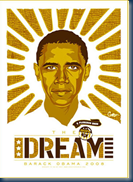This is the third of three posts – read post one and post two for context.
 While faith must be grounded in reason and is not just wishful thinking, there is also a certain amount of choice involved. People must reach conclusions of their own regarding what is or is not too big of a leap of faith. I want to believe what is true, not just what makes me feel good. If I simply wanted to believe something to make me feel good I would not subscribe to Christianity. I follow Jesus because I believe He is the real deal. Some beliefs I hold more strongly than others. For example, it is central to my belief in Jesus that He is not simply a good teacher but is God incarnate, a member of the Trinity. It is also central to my belief in Him that He lived a perfect, sinless life and died on the cross as payment for the sins of all humanity. I believe those things strongly because I believe they are clearly laid-out in Scripture and a coherent picture of Jesus drawn from Scripture must, I believe, include those things. Other beliefs about God and what He does on Earth are less well-defined and more up for debate and interpretation.
While faith must be grounded in reason and is not just wishful thinking, there is also a certain amount of choice involved. People must reach conclusions of their own regarding what is or is not too big of a leap of faith. I want to believe what is true, not just what makes me feel good. If I simply wanted to believe something to make me feel good I would not subscribe to Christianity. I follow Jesus because I believe He is the real deal. Some beliefs I hold more strongly than others. For example, it is central to my belief in Jesus that He is not simply a good teacher but is God incarnate, a member of the Trinity. It is also central to my belief in Him that He lived a perfect, sinless life and died on the cross as payment for the sins of all humanity. I believe those things strongly because I believe they are clearly laid-out in Scripture and a coherent picture of Jesus drawn from Scripture must, I believe, include those things. Other beliefs about God and what He does on Earth are less well-defined and more up for debate and interpretation.
For example – the Bible says:
“Every good and perfect gift is from above, coming down from the Father of the heavenly lights, who does not change like shifting shadows.” – James 1.17 (NIV)
That seems straightforward-ish, but how do I identify what a gift is and what a coincidence is? Is every good thing that happens a gift? What about things that may be good but I interpret them as bad? These are the kinds of decisions we have to make – how are we going to view the world? Because I tend to view the world as a critical thinker I am very slow to attribute something to the work of God unless I feel like I have a really good reason to do so. But is there any harm in attributing something to God when He didn’t do it?
For example – the person who thanks God for the good parking space – what harm is there in that? What does it matter if someone wants to believe God orchestrated events so they could walk twenty less feet to go into the mall and buy crap they don’t need? I think it can be harmful or counterproductive in a couple ways.
First, I would argue the harm is not in that particular instance – and perhaps that little incident would “grow” their faith or make them think more about God – but I think that sort of stuff breeds a dangerous kind of credulity that makes the person vulnerable. If someone simply claims God is responsible for various things but doesn’t put much thought into which things, how likely are they to simply believe someone who comes along and says “God told me you need to give me this” or “This is a movement of the Spirit and you should be involved?” If you have no filter or method or criteria for determining what you think God does and does not do when it comes to things in your own life (like parking spaces) then how much more likely are you to simply accept what someone else says? If no amount of thinking or evidence or reason can be applied, and everything is simply “faith,” then I think you are entering dangerous territory.
 A second way I think thanking God for the parking space could be harmful is the fact that it may encourage a kind of solipsistic faith. What I mean by that is a faith that thinks mostly about the self and how God makes your life better. It is the kind of faith that misses the point of the gospel and turns Jesus dying on the cross for our sins to inaugurate the coming of God’s Kingdom to earth into Jesus dying on the cross so we can have nice things and go to heaven when we die. This kind of viewpoint on faith can give rise to the kind of person who prays for God to “deliver” them from the struggle of having to rent instead of buy, while they rack up credit card bills buying crap they don’t need and say they can’t afford to give money to charity or the church. It can lead to the kind of vapid faith that so many outside Christendom find hollow and so many (not enough) within find revolting at best.
A second way I think thanking God for the parking space could be harmful is the fact that it may encourage a kind of solipsistic faith. What I mean by that is a faith that thinks mostly about the self and how God makes your life better. It is the kind of faith that misses the point of the gospel and turns Jesus dying on the cross for our sins to inaugurate the coming of God’s Kingdom to earth into Jesus dying on the cross so we can have nice things and go to heaven when we die. This kind of viewpoint on faith can give rise to the kind of person who prays for God to “deliver” them from the struggle of having to rent instead of buy, while they rack up credit card bills buying crap they don’t need and say they can’t afford to give money to charity or the church. It can lead to the kind of vapid faith that so many outside Christendom find hollow and so many (not enough) within find revolting at best.
So what am I to do when I look at the circumstance I find myself in? I’m pursuing a career path that fell into my lap, that’s not what I originally wanted to pursue. If I had been left to my own devices and this teaching thing not come along, my family would almost certainly be in a worse place.
I’ve decided this is an example of God providing for me and giving me a gift. Why this and not a parking space? I can’t exactly list the reasons. But this feels more important to me than a parking space. And I think I will be better for the gospel and my family will be better for it with this new path. Am I 100% positive God brought me this new career and directed me away from the corporate world? No, but I think He did. And I don’t think by praising God for it I am falling into the trap I’ve described. Yes, it’s possible this was just coincidence and not a result of God’s providence; but if I can’t thank God for this, I can’t thank Him for anything.
So I suppose to one extent this is part of what “faith” means for me: being willing to thank God for something even if I have to exercise some faith in believing He brought it to me rather than me being brilliant or lucky. It’s a pretty meager definition of faith by the standards of some, but it’s where I am at the moment. In truth, everything I have
I think I need to perhaps be a bit less judgmental of people who have a less skeptical mindset than I do. Some people rail against athletes who thank God for their success, or people who thank Jesus for winning an award. Critics think it’s stupid of the person to think the God of the Universe would care who wins the Superbowl or who wins the MVP award. To them it smacks of the egotistical, “me-focused” faith I described earlier. I can see that, but I think understood the way I am talking about here it doesn’t have to be ridiculous. If you believe God provided you with the talent you used to win the game, why would it be inappropriate to thank Him when  you win? It’s not the same as saying He made you win the Superbowl – but it’s recognizing you have been blessed with opportunities and gifts and whatever else that others don’t have. Two people making the same statement – “thank God” – can be communicating very different sentiments and thought processes. I think one person making the statement could be making an admirable, humble statement and someone else making it could be saying something incredibly stupid and self-centered.
you win? It’s not the same as saying He made you win the Superbowl – but it’s recognizing you have been blessed with opportunities and gifts and whatever else that others don’t have. Two people making the same statement – “thank God” – can be communicating very different sentiments and thought processes. I think one person making the statement could be making an admirable, humble statement and someone else making it could be saying something incredibly stupid and self-centered.
I still think it’s dangerous to place your faith on shaky ground or to look at the world from an “I believe everything I hear even if there’s no evidence presented” point of view – but for me to look down on others with that mindset is prideful and I don’t think very Christ-like.
While it is less likely I will be fooled by errant theology or charlatans, it is also less likely I will notice the ways God lavishes His love upon me. It is likely I will not notice and be thankful for the true blessings in my life. I still can’t bring myself to thank God for giving me a green light or a good parking space – but I feel safe thanking Him for growing up where I did, for my natural abilities, my career, my home, my friends, and my family. I suppose it could have all been dumb luck, but I don’t think it was.






















 I decided to combine these two into one post because they pretty much deal with the same issue – renewable energy and how to get it. With the increase of gas prices (which now seems like a small problem compared to the larger economic crisis) these two issues got on the ballot and are an attempt to move California in the direction of renewable energy. Here they are:
I decided to combine these two into one post because they pretty much deal with the same issue – renewable energy and how to get it. With the increase of gas prices (which now seems like a small problem compared to the larger economic crisis) these two issues got on the ballot and are an attempt to move California in the direction of renewable energy. Here they are:








